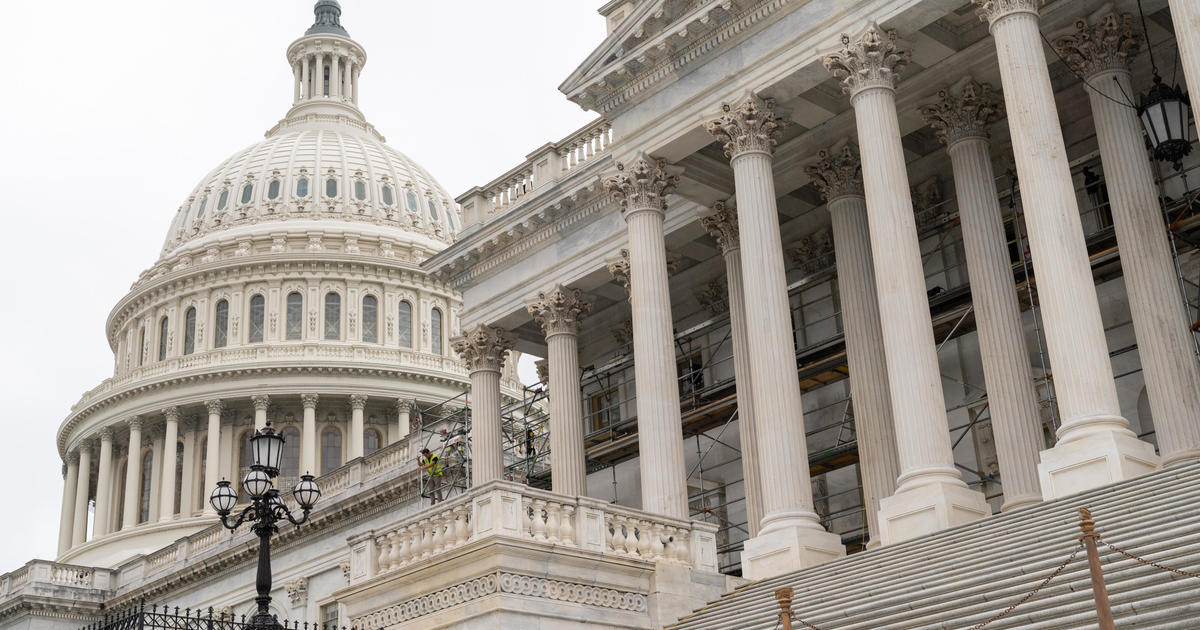
What's at stake in the 2022 midterm elections?
CBSN
The 2022 midterm elections this November could be the most consequential in years, possibly defying political history and resetting modern political norms. The economy and inflation: They remain the top issues of concern in CBS News polling. More than half of voters say they've seen gas prices — a key inflation indicator — declining in their area, but a plurality of voters, 43%, expect the U.S. economy to be in recession in the next year. While Mr. Biden has enjoyed recent policy wins with passage of a new climate, health and tax law and the CHIPs and Science Act, just 40% approve of his handling of the economy in our recent poll. Voting and elections issues: Among the hundreds of Republican candidates appearing on ballots nationwide, widespread belief among most Republicans that the 2020 presidential election was either stolen or mishandled, and fears among independents and Democratic voters that those Republicans could seize power, general concerns about voting and democracy have become a big issue of concern. The prospect of violence is also tied in part to a perception of widening divisions in the country: a whopping 80% of Americans believe the U.S. is more divided now than it was during their parents' generation. Just as many say tone and civility have gotten worse. Crime and gun policy: The shooting at an elementary school in Uvalde, Texas, is just the latest flashpoint in the decades-long fight over national gun control policy — but increased crime rates in several of the nation's largest cities, especially due to gun-related crime, is also a major cause of concern. Republicans continue to highlight concerns with crime, while Democrats — including the president — continue to campaign for stricter gun policy despite passage of bipartisan gun control and mental health legislation this summer, the most ambitious in more than 20 years. In response to growing voter concerns, Democrats are trying to portray themselves as tougher-on-crime than Republicans, noting support for increased federal funding for law enforcement and denunciation of those who attacked the U.S. Capitol on January 6th, 2021 — and the GOP officeholders who back them. Abortion rights: With the Supreme Court's decision to overturn Roe v. Wade, Democratic campaigns and super PACs tell CBS News they have seen increased interest from concerned voters, including more online activity and fundraising and willingness to volunteer. Data also indicate the court's decision is driving more voter registration for Democrats, especially among younger women.
Every seat in the House of Representatives is up for grabs, as are 35 U.S. Senate seats and 36 governorships. Several more down-ballot races for secretary of state, attorney general or control of state legislatures could have wide-ranging effects on the management of the 2024 presidential elections, as could hot-button issues like abortion rights, climate change and health care.

The president of El Salvador is refuting allegations made by Kilmar Abrego Garcia - the man whose mistaken deportation by the Trump administration has fueled a monthslong legal saga – in which he said he was beaten and subject to psychological torture while in prison in the Central American country.

Washington — President Trump is bringing pomp and circumstance to his signing of the "big, beautiful bill" on Friday, with a 4 p.m. Independence Day ceremony at the White House. The current $2,000 child tax credit, which would return to a pre-2017 level of $1,000 in 2026, will permanently increase to $2,200. The bill would allow many tipped workers to deduct up to $25,000 of their tips and overtime from their taxes. That provision expires in 2028. The bill would make changes to the Supplemental Nutrition Assistance Program, or food stamps, expanding work requirements and requiring state governments with higher payment error rates to cover some of the program's costs. The legislation also includes more than $46.5 billion for border wall construction and related expenses, $45 billion to expand detention capacity for immigrants in custody and about $30 billion in funding for hiring, training and other resources for U.S. Immigration and Customs Enforcement. The legislation would raise the debt ceiling by $5 trillion, going beyond the $4 trillion outlined in the initial House-passed bill. Congress faces a deadline to address the debt limit later this summer.





















 Run 3 Space | Play Space Running Game
Run 3 Space | Play Space Running Game Traffic Jam 3D | Online Racing Game
Traffic Jam 3D | Online Racing Game Duck Hunt | Play Old Classic Game
Duck Hunt | Play Old Classic Game









